About Civil Liberties Australia
CLA Management Team
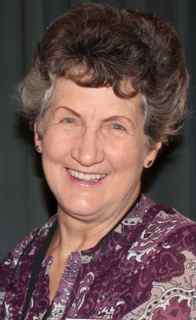 PRESIDENT: Dr Kristine Klugman OAM
PRESIDENT: Dr Kristine Klugman OAM
Dr Klugman’s PhD in Politics at ANU analysed the two-way communication flow between MPs and electors. Earlier degrees were in Community Studies, and History. Kris previously served on the NSW Legal Aid Commission, was a foundation member of the NSW Council for Civil Liberties, and a researcher with the NSW Bureau of Crime Statistics and Research, helping to establish the Criminal Justice tertiary course for police and prison officers in NSW. Her OAM was for ‘services to education and the community’. She was the first-ever female President of the board of Australia’s oldest museum, The Australian Museum. She was also the first female board member and full-time Deputy President in the 100-year history of the Board of Fire Commissioners of NSW, running the NSW Fire Brigades, and a member of state bushfire and rescue governing councils. She was co-founder of Civil Liberties Australia, and served as President from its outset in 2003. https://en.wikipedia.org/wiki/Kristine_Klugman
 VICE-PRESIDENT: Margaret Howkins
VICE-PRESIDENT: Margaret Howkins
Margaret returned to WA in the early 2000s, after more than 30 years away in Canada and England, where she worked in communications before gaining formal qualifications in sociology and psychology. She ran training and management programs for the Trades Union Congress and British police among others. Back home in Perth, she was surprised to find some attitudes, training and actions of authorities antiquated by comparison: she set about becoming a change agent to ensure better monitoring of police and bureaucracies, and to boost understanding for how citizens must stand up for themselves to retain civil liberties. Recently she has tutored students to prepare them for final high school exams and university early-year courses. Her major areas of concern are police and prison matters.
 CEO: William (Bill) Rowlings OAM
CEO: William (Bill) Rowlings OAM
Bill’s career included journalism on Australian, UK and PNG daily and Sunday newspapers, as well as being editorial director of a monthly business and sports publishing house. In PR, he was media adviser to a senior federal politician and consulted to major corporates, federal departments and agencies and NGOs, as well as co-authoring an Australian tertiary PR textbook. In 2013 he received an OAM for services to civil liberties and human rights. From the co-founding of Civil Liberties Australia (in 2003, with Dr Kristine Klugman), he has managed the organisation’s affairs day-to-day, and edited the monthly CLArion newsletter. For a brief period in 2021, he served as President.
 DIRECTOR: WOSP: Dr Tony Murney
DIRECTOR: WOSP: Dr Tony Murney
Tony has lengthy experience in government and international organisations across the Commonwealth Parliament, ACT Policing, and the AFP International Deployment Group as well as appointments with the UN. He served three tours in Afghanistan and two in Somalia and held several key positions including Chief Technical Adviser on Police Professionalisation in Kabul and Deputy Commissioner of the UN integrated Police Team in Mogadishu. Tony is a committed advocate for international police development and reform with a strong interest in civil liberties, balanced security solutions and good government. He speaks regularly on these subjects both domestically and internationally, and manages CLA’s ‘Watch Over Policing & Security (WOSP) campaign. Tony has a PhD in anthropology and undergraduate qualifications in regional development.
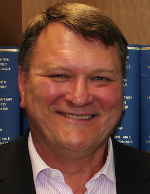 National Manager HRAs: Chris Stamford
National Manager HRAs: Chris Stamford
Chris retired in 2019 from the GM level with Austrade, after earlier experience in the APS across Tourism, Mining Productivity, and National and International Airspace, in Australia and in overseas forums. He has qualifications in History, Philosophy and Air and Space Law. Chris is leading CLA’s national campaigns and lobbying for a federal Human Rights Act, and for HRAs in jurisdictions which have not yet adopted one (SA, WA, NSW, Tasmania and the NT). In the ACT, CLA is helping to entrench the basic principle of ‘No Rights Without Remedies’ as Australia’s first HR legislation is updated on its 20th anniversary in 2024.
Last updated 1 July 2023
CLA Constitution
CLA is developing a new set of operating principles to replace its former Constitution as an incorporated entity. They will be posted here in the near future. In the meantime, please contact the CEO for further information.
CLA Background
Civil Liberties Australia (CLA) is headquartered in Australia’s capital city, Canberra, and operates nationally. CLA stands for people’s rights, and goes in to bat for our civil liberties…basically, for a fair go. It is non-party political and independent of other organisations, and funded by donations – CLA does not receive funding from government.
CLA monitors police and security forces, and the actions and inaction of politicians and bureaucrats as well as reviewing proposed legislation to make it better. Actions and activities are reported in a regulat newsletter, CLArion; in published reports each year; and regularly on the website www.cla.asn.au The website also carries articles of general interest in the field of liberties, rights, freedoms and responsibilities.
The organisation aims to keep Australia the free and open society it has traditionally been, where you can be yourself without undue interference from ‘authority’. CLA was registered as an incorporated association on 10 December 2003. In 2021, members decided to dispense with incorporation for ease of management reasons.
Subscribe to ‘CLArion’, the newsletter of Civil Liberties Australia by clicking here. NOTE: We will ask you to make a donation each year.
History
The people and organisations fighting for freedoms and liberties
A new book in production, by Dr Kristine Klugman* and Bill Rowlings**
Please feel free to download a chapter: (NOTE: at January 2022, all chapters ‘completed’: corrections/additions welcome)
Introduction:
 ‘Liberties’ have changed dramatically in the tens of thousands of years people have occupied Australia. Now, worldwide, there’s universal surveillance, vast identity databases and mandated uniform behaviour enforced by machine gun-toting, armour-wearing, black-helmeted, shield-carrying storm troopers operating under “anti-terror” rules of their own devising. The battle to retain civil liberties has never been sharper, harder or more important.
‘Liberties’ have changed dramatically in the tens of thousands of years people have occupied Australia. Now, worldwide, there’s universal surveillance, vast identity databases and mandated uniform behaviour enforced by machine gun-toting, armour-wearing, black-helmeted, shield-carrying storm troopers operating under “anti-terror” rules of their own devising. The battle to retain civil liberties has never been sharper, harder or more important.
Click to download the Introduction chapter
Aborigines:
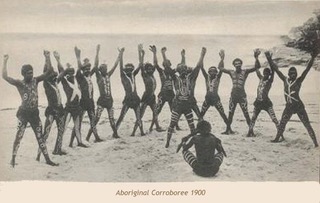 Did – do – Aboriginal people and Torres Strait Islanders have a different notion of ‘civil liberties’ than other Australians? It seems that liberties and rights, along with responsibilities, were and are intricately woven into their working, communicating and religious life. Other Australians have a long way to go in allowing them to lead us into a better understanding of what living in peace, harmony and mutually-respectful freedom really means.
Did – do – Aboriginal people and Torres Strait Islanders have a different notion of ‘civil liberties’ than other Australians? It seems that liberties and rights, along with responsibilities, were and are intricately woven into their working, communicating and religious life. Other Australians have a long way to go in allowing them to lead us into a better understanding of what living in peace, harmony and mutually-respectful freedom really means.Click to download the Aborigines chapter
Civil Liberties Australia:
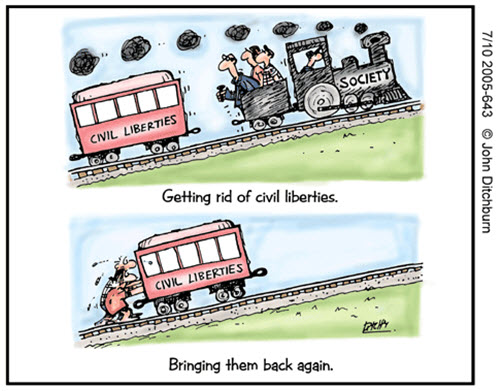
The youngest of the Australian freedom-fighting entities, with a reputation for ‘punching above its weight’, according to Special Minister of State and Cabinet Secretary, Senator John Faulkner. Read how a failure to lodge annual returns in the ACT led to the founding of what quickly became an active national organisation, represented through all states and territories.
Click to download the CLA chapter
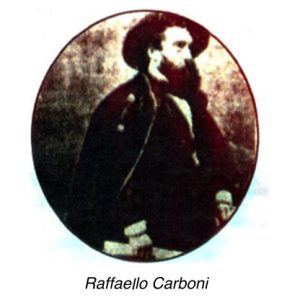 Victoria:
Victoria:
The state where the fight for rights and liberties began in Australia has seen several civil liberties groups born, change ’shape’ and rise and fall over 80 years of somewhat rocky progress. It claims the ‘father of civil liberties’, Brian Fitzpatrick, among its number, and has also produced numerous notable campaigners, advocates, political and judicial figures of state and national significance.
Click to download the Victorian chapter
New South Wales:
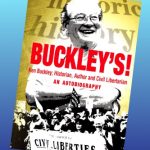 Frequently the most-quoted liberties group (many national media outlets are Sydney-based), NSW for three-quarters of its 60-odd years focused closely on state laws and problems, rather than national issues. Like all such groups, it depended on one mainstay, Ken Buckley, for 45 years. Now, as society, media and the organisation itself changes, the NSWCCL is starting to put greater emphasis on federal matters.
Frequently the most-quoted liberties group (many national media outlets are Sydney-based), NSW for three-quarters of its 60-odd years focused closely on state laws and problems, rather than national issues. Like all such groups, it depended on one mainstay, Ken Buckley, for 45 years. Now, as society, media and the organisation itself changes, the NSWCCL is starting to put greater emphasis on federal matters.
Click to download NSW chapter
Queensland:
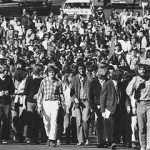 The Sunshine State saw dark days for 20 years to the late 1980s, when undemocratic politicians combined with crooked police to institutionalise corruption and rort citizens of their personal and group rights. For decades, through very thin governments and some thick, the local civil liberties council has fought possibly the most active, real-life battles in the national ‘war’ for freedoms, particularly and notably for the very right to march on the streets of the capital, Brisbane, as countless university student marches have shown.
The Sunshine State saw dark days for 20 years to the late 1980s, when undemocratic politicians combined with crooked police to institutionalise corruption and rort citizens of their personal and group rights. For decades, through very thin governments and some thick, the local civil liberties council has fought possibly the most active, real-life battles in the national ‘war’ for freedoms, particularly and notably for the very right to march on the streets of the capital, Brisbane, as countless university student marches have shown.
Click to download QLD chapter
South Australia:
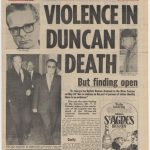 Founded without convicts, the state was at one stage ruled by police who bashed homosexual men for sport and dumped them in the river running a long stone’s throw from State Parliament. But once-strong civil libertarians – led by a freedom-loving Premier – helped to regain rights for their fellow citizens. The modern challenge is just as great, if the fight back not so strong.
Founded without convicts, the state was at one stage ruled by police who bashed homosexual men for sport and dumped them in the river running a long stone’s throw from State Parliament. But once-strong civil libertarians – led by a freedom-loving Premier – helped to regain rights for their fellow citizens. The modern challenge is just as great, if the fight back not so strong.
Click to download the South Australian chapter
Western Australia:
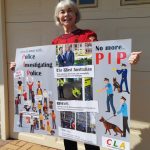 Through internal and external political turmoil, there has been a civil liberties body in WA since 1936. Skullduggery, thuggery and bashings – some by police and their mates – have helped shape it. Perth still exudes a frontier feel, dominated by moneyed elites, old boys’ clubs, and power brokers operating on the fringes of legality to ‘get things done’. The culture demands citizens keep close watch on people’s liberties and freedoms…not least because of the dreadful things done by the government and corporations to WA’s Indigenous people.
Through internal and external political turmoil, there has been a civil liberties body in WA since 1936. Skullduggery, thuggery and bashings – some by police and their mates – have helped shape it. Perth still exudes a frontier feel, dominated by moneyed elites, old boys’ clubs, and power brokers operating on the fringes of legality to ‘get things done’. The culture demands citizens keep close watch on people’s liberties and freedoms…not least because of the dreadful things done by the government and corporations to WA’s Indigenous people.
Click to download WA chapter
Tasmania:
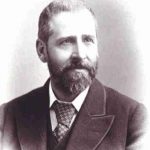
A state noted early for its model prison (which became the slaughterhouse site of an over-armed madman) has much to tell about freedoms. Almost certainly Australia’s most successful rights-claiming and negotiating entity, Tasmania still doesn’t have the bill of rights that its most famous liberty-lover, Andrew Inglis Clark, wanted constitutionally for both state and nation.
Click to download Tasmanian chapter
Northern Territory:
 Read how the police tried to take over the inaugural meeting of the Council for Civil Liberties in Darwin, but God wouldn’t let that happen! By the time of the 2nd meeting, the few police left were too busy on general duties to try to control the liberties of Territorians, who have remained frontier in place and spirit ever since.
Read how the police tried to take over the inaugural meeting of the Council for Civil Liberties in Darwin, but God wouldn’t let that happen! By the time of the 2nd meeting, the few police left were too busy on general duties to try to control the liberties of Territorians, who have remained frontier in place and spirit ever since.
ACT:
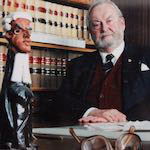 For 40 years the ACT’s civil liberties body held the line for liberty in the national capital, until a bid to make it more active and influential ultimately had the entirely opposite effect, and the organisation died. The last long-term President was barrister Laurie O’Sullivan (photo), now deceased. One short-term President, Jon Stanhope, was responsible for introducing Australia’s first Bill of Rights.
For 40 years the ACT’s civil liberties body held the line for liberty in the national capital, until a bid to make it more active and influential ultimately had the entirely opposite effect, and the organisation died. The last long-term President was barrister Laurie O’Sullivan (photo), now deceased. One short-term President, Jon Stanhope, was responsible for introducing Australia’s first Bill of Rights.
Attempts to form a national body:
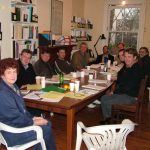 Several attempts to form a national civil liberties body, representing all the state-based entities, have failed. Often-unstated jealousy over which council was bigger, which state should be predominant, which person should head a combined organisation was enough to scuttle cooperation, often sought by the smaller states because they knew the value of a larger, combined voice singing the same tune. Oddly, a bid to bring the groups together in the early 2000s resulted in the first truly national civil liberties body ever.
Several attempts to form a national civil liberties body, representing all the state-based entities, have failed. Often-unstated jealousy over which council was bigger, which state should be predominant, which person should head a combined organisation was enough to scuttle cooperation, often sought by the smaller states because they knew the value of a larger, combined voice singing the same tune. Oddly, a bid to bring the groups together in the early 2000s resulted in the first truly national civil liberties body ever.
Download the ’National Attempts’ chapter
Conclusion:
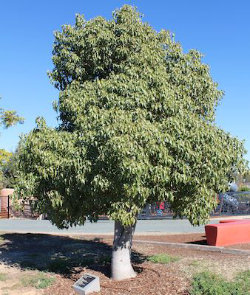 A massive task faces Australia if we are to be truly a nation of equal rights by 2050. In such a future recharged Australia, the powerless could enforce their freedoms against the political and corporate elite, and Aborigines would be full and equal members. To get to this more enlightened state involves reining back panicked laws produced after the 2001 terrorist attacks in the USA, reframing what personal rights are in the face of a dire emergency like a pandemic, recasting our ‘justice’ system from the ground up, introducing effective personal privacy legislation and – ultimately – creating our own bill of rights, infused with and informed by our Aboriginal heritage. Photo: National Liberty Tree, Canberra 2019
A massive task faces Australia if we are to be truly a nation of equal rights by 2050. In such a future recharged Australia, the powerless could enforce their freedoms against the political and corporate elite, and Aborigines would be full and equal members. To get to this more enlightened state involves reining back panicked laws produced after the 2001 terrorist attacks in the USA, reframing what personal rights are in the face of a dire emergency like a pandemic, recasting our ‘justice’ system from the ground up, introducing effective personal privacy legislation and – ultimately – creating our own bill of rights, infused with and informed by our Aboriginal heritage. Photo: National Liberty Tree, Canberra 2019
Conclusion
* Historian, author and President of Civil Liberties Australia
** Journalist, author and CEO of Civil Liberties Australia
Previous formal documents relating to CLA Inc are here:
The Annual Report for 2020 and other papers for the 2020 electronic Annual General Meeting are:
The Annual Report for 2019 and other papers for the 2020 electronic Annual General Meeting are:
- Declaration of 2020 eAGM
- Report/Minutes of the 2019 AGM
- President's Report for 2019
- Treasurer's Report for 2019 (included in the Annual Report), and the
- CLA Annual Report for 2019.
- Notice of Motion - AGM 2020
The Annual Report for 2018 and other papers considered by the 2019 electronic Annual General Meeting were:
- Declaration of 2019 eAGM
- Report/Minutes of the 2018 AGM
- President's Report for 2018
- Treasurer's Report for 2018 (included in the Annual Report), and the
- CLA Annual Report for 2018.
The Annual Report for 2017 and other papers considered by the 2018 electronic Annual General Meeting were:
- Report/Minutes of the 2018 AGM
- President's Report for 2017
- Treasurer's Report for 2017 (included in the Annual Report), and the
- CLA Annual Report for 2017.
The Annual Report for 2017 and other papers considered by the 2017 electronic Annual General Meeting were:
- Report/Minutes of the 2017 AGM (Declaration of voting/election)
- President’s Report for 2016
- CLA Annual Report for 2016 which includes the Treasurer’s Report for 2016
The Annual Report for 2016 and other papers considered by the 2016 electronic Annual General Meeting were:
- Report/Minutes of the 2016 AGM
- President's Report for 2015
- Treasurer's Report for 2015 (included in the Annual Report), and the
- CLA Annual Report for 2015.
The Annual Report for 2014 and other papers considered by the 2015 electronic Annual General Meeting were:
- Report/Minutes of the 2015 AGM
- President's Report for 2014
- Treasurer's Report for 2014 (included in the Annual Report), and the
- CLA Annual Report for 2014.
The Annual Report for 2013 and other papers considered by the 2014 electronic Annual General Meeting were:
- Report/Minutes of the 2014 AGM
- President's Report for 2013
- Treasurer's Report for 2013 (included in the Annual Report), and the
- CLA Annual Report for 2013.
The Annual Report for 2012 and other papers considered by the 2013 electronic Annual General Meeting were:
- Report/Minutes of the 2013 AGM
- President's Report for 2012,
- Treasurer's Report for 2012 (included in the Annual Report), and the
- CLA Annual Report for 2012.
ription
The Annual Report for 2011 and other papers considered by the 2012 electronic Annual General Meeting were:
- Report/Minutes of the 2012 AGM
- President's Report for 2011,
- Treasurer's Report for 2011 (included in the Annual Report), and the
- CLA Annual Report for 2011.
The Annual Report for 2010 and other papers considered by the 2011 electronic Annual General Meeting were:
- Report/Minutes of the 2011 AGM
- President's Report for 2010,
- Treasurer's Report for 2010 (included in the Annual Report), and the
- CLA Annual Report for 2010.
The Annual Report for 2009 and other papers considered by the 2010 electronic Annual General Meeting were:
- Minutes of the 2010 AGM
- President's Report for 2009,
- Treasurer's Report for 2009 (included in the Annual Report - see pages 7, 8, 11 and 12 of the Annual Report), and the
- CLA Annual Report for 2009.
The Annual Report for 2008 and other papers considered at the 2009 electronic Annual General Meeting were:
2008
The Annual Report for 2007 delivered to the 2008 AGM (5 Apr 08). Also an audio of the keynote speaker at the 2008 AGM of CLA, Professor George Williams, is below, outlining why Australia needs a charter of rights and responsibilities.
Click to listen to the 2008 AGM keynote address by Prof George Williams Note: This is a 34mb streaming file in total [player id=41381]
2007
The Annual Report for 2006 delivered to the 2007 AGM is available here.
2006
The Annual Report for 2005 delivered to the 2006 AGM.
2005
The Annual Report for 2004 delivered to the 2005 AGM.
CLA Policies
We stand for people’s rights, and go in to bat for everyone’s civil liberties. We monitor police and security forces, and the actions and inaction of politicians. We review proposed legislation, to make it better, and keep watch on government departments and agencies. We work to keep Australia the free and open society it has traditionally been, where you can be yourself without undue interference from ‘authority’.
Over 2020-2025, we expect our main activities to be:
- promoting civil liberties – a fair go for everyone – in Australia;
- seeking reform of parliamentary processes and systems;
- improving draft laws and contributing to parliamentary hearings;
- correcting the worst excesses of anti-terrorism laws;
- monitoring Australia’s ’spook’ agencies as closely as possible
- helping to safeguard people’s data and privacy, especially in health;
- cooperating with similar groups, for example (privacy, prisons, refugees, mental health, drug law reform, aboriginal rights, migrant rights,
- whistleblowers, voluntary euthanasia, etc)
- campaigning against the death penalty;
- monitoring prisoners’ and detainees’ rights in jails, especially juveniles;
- helping legal students research and analyse national and international issues;
- producing a monthly email newsletter CLArion on key issues; and
- creating a larger, more robust national civil liberties organisation
When you join Civil Liberties Australia, while we expect your support generally, we recognise that you don’t have to advocate every policy. You are free to disagree on particular issues: that’s freedom of choice. Below are the topics on which we have formalised policy positions. Please click if you wish to see them:
| Category | Policy | Article |
|---|---|---|
| Accountability | Policy | Articles |
| Censorship | Policy | Articles |
| Charter of Rights | Policy | Articles |
| Constitutional Rights | Policy | Articles |
| Criminal Justice | Policy | Articles |
| Death Penalty | Policy | Articles |
| Detention | Policy | Articles |
| Drugs and Alcohol | Policy | Articles |
| Euthanasia | Policy | Articles |
| Freedom of Information | Policy | Articles |
| Freedom of speech | Policy | Articles |
| Gender | Policy | Articles |
| Genetics & DNA | Policy | Articles |
| Government Reports | Policy | Articles |
| Health Access | Policy | Articles |
| Human Rights | Policy | Articles |
| Indigenous | Policy | Articles |
| Justice Access | Policy | Articles |
| Policing | Policy | Articles |
| Privacy | Policy | Articles |
| Refugees | Policy | Articles |
| Sedition | Policy | Articles |
| Technology | Policy | Articles |
| Terrorism | Policy | Articles |
| Treaties | Policy | Articles |
| WhistleBlowing | Policy | Articles |
| Workplace | Policy | Articles |
| Young People | Policy | Articles |
| Your Rights | Policy | Articles |
Commenting …our policy
We welcome comments, for alternative views and to generate debate. We check comments before they are published, to make sure they are on-topic, family-friendly and in keeping with our publishing principles. To make sure your comments are published, please…
- stay on topic
- leave out swear words and bad language
- be careful not to libel or defame any body
- do not be -ist: (race, age, sex, etc)
- avoid posting someone else’s copyright material, and
- concentrate on the factual more than the emotional (though there’s room for both)
If your comments stray from these principles, they may not be posted, or may be edited to remove bits we find offending or inappropriate.
If you see something in a comment that you think is objectionable, please let us know your reasons.
We usually post comments at the bottom of articles, with a link off the Home page as well. But we may use them elsewhere, or as a separate article (we also reserve the right to not post them at all, at our sole discretion). See also our Terms of Use and Privacy policies links below.

